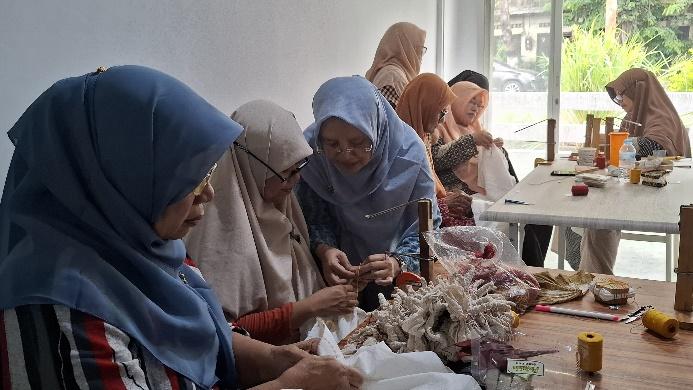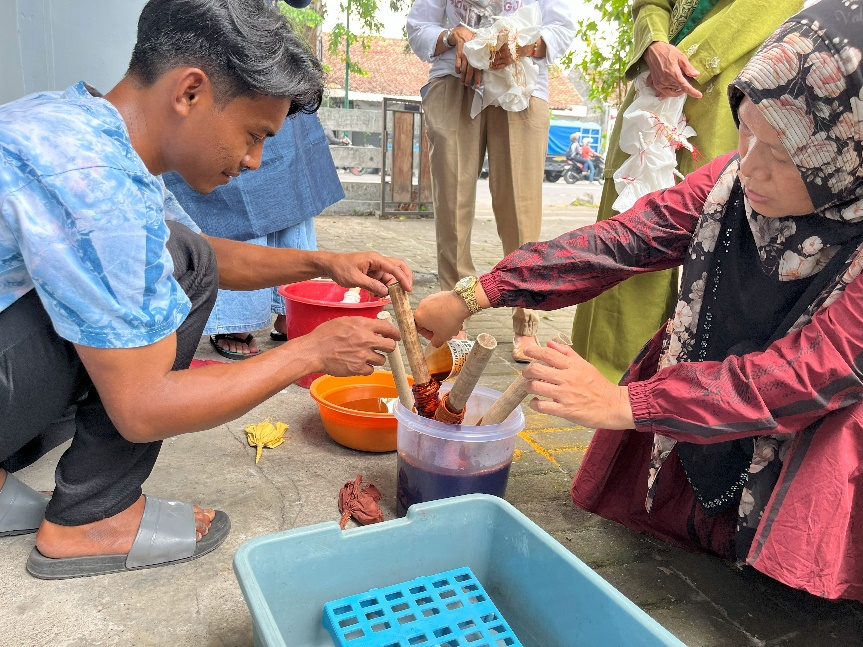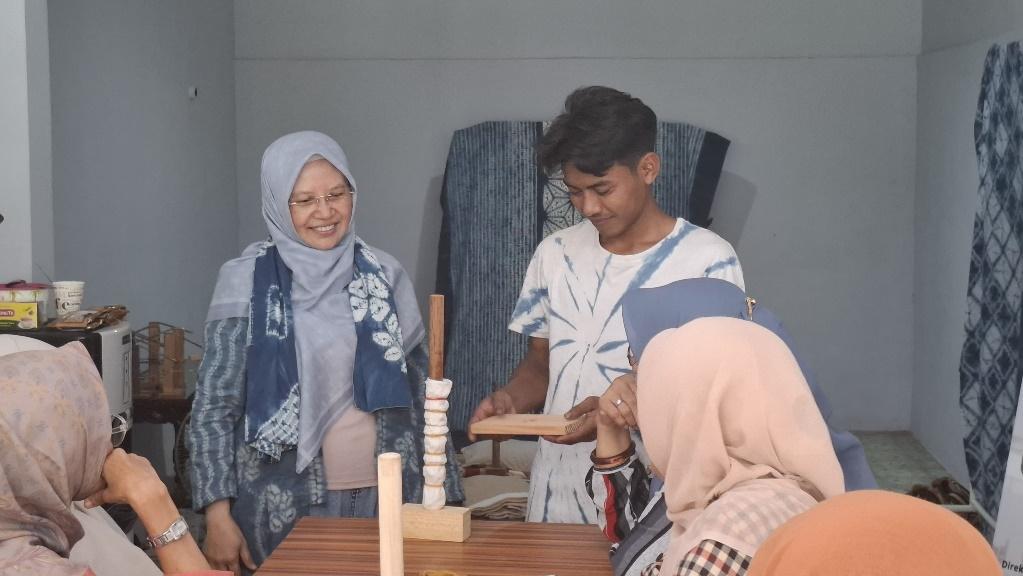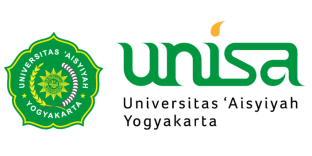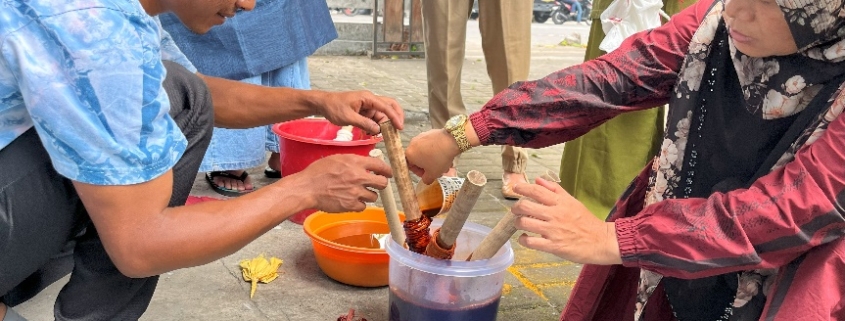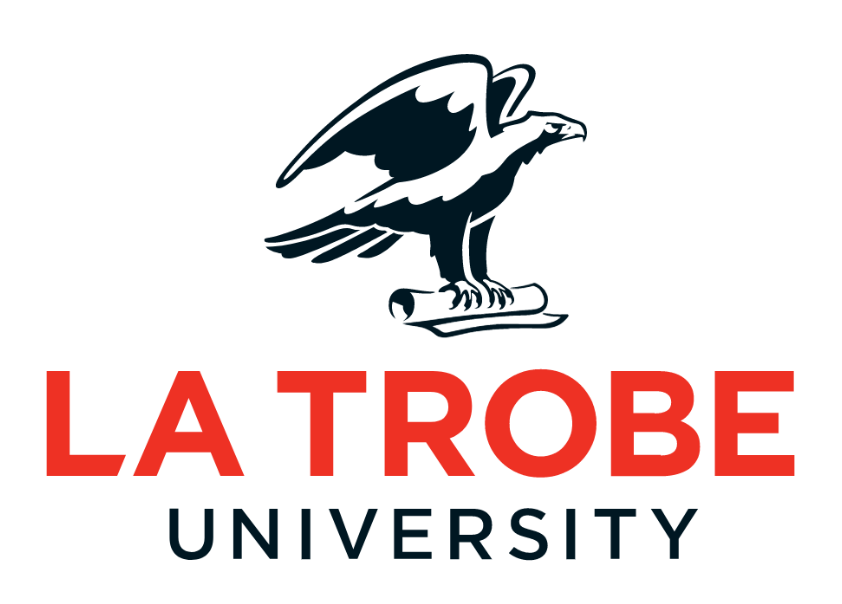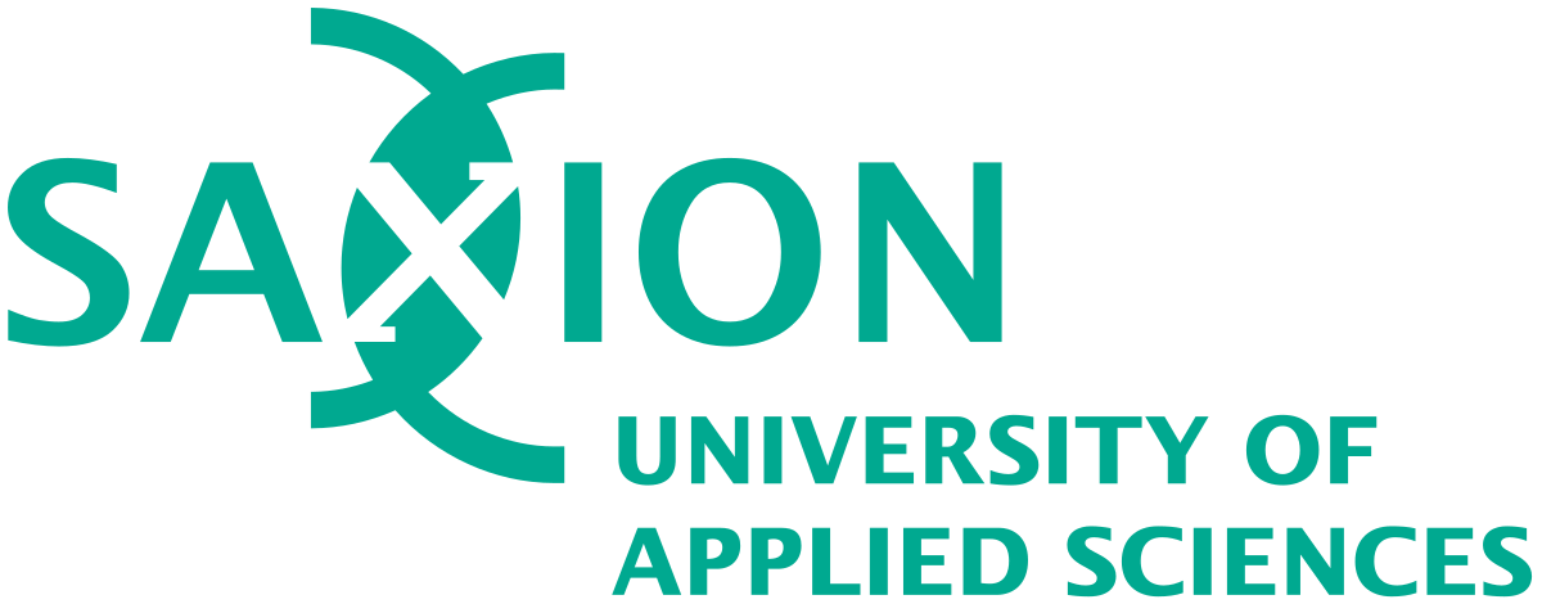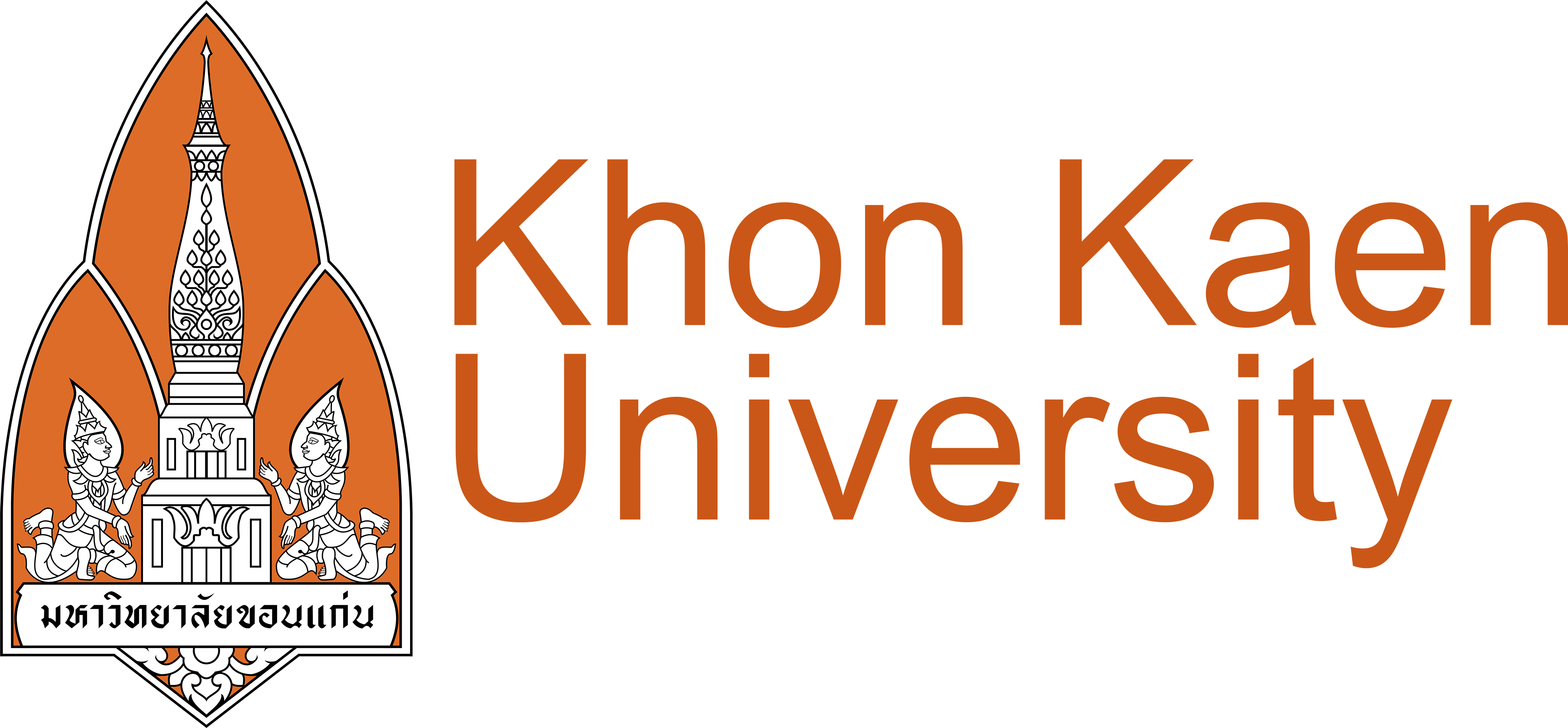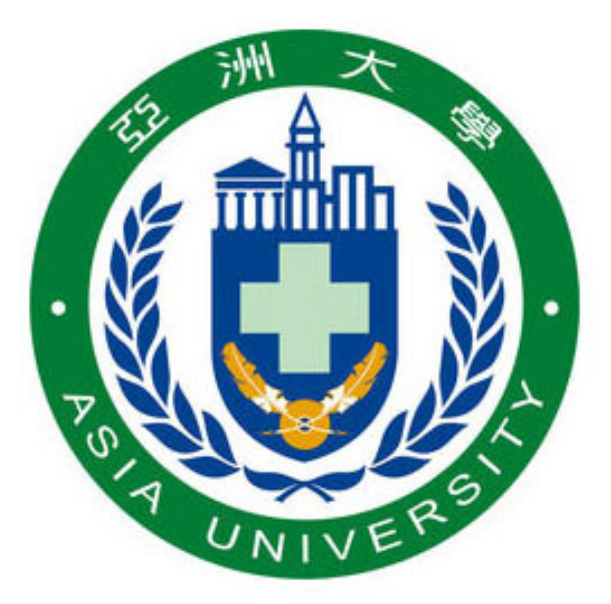Sekaron Ecoprint Learning Shibori: Connecting Japanese Culture and Local Creativity
Sekaron Ecoprint, a creative business known for its unique ecoprint products, is now going a step further by learning the traditional Japanese fabric dyeing technique, Shibori. In an effort to develop their products and enrich the local cultural treasures, Sekaron Ecoprint participated in Shibori training organized by the Institute for Research and Community
Service (LPPM) of Universitas `Aisyiyah (UNISA) Yogyakarta, Wednesday (13/11).
Shibori, a technique of dyeing fabric by tying, folding or pinching the fabric before dipping it in dye, has been an integral part of Japanese cultural heritage since the 8th century. With its distinctive geometric patterns, Shibori not only offers aesthetic beauty, but also contains deep philosophical values.
The two-day workshop was led by Shibori expert Astinah Sulisworo from Nak Nik. The participants were introduced to various Shibori techniques, from basic techniques to more complex ones. In addition, they also learned about choosing the right dye material, especially for cotton fabrics that are widely used in ecoprint production.
“Natural dyes are very suitable for weaving that has natural fibers, but for cotton fabrics, natural dyes can fade,” said Astinah.
Astinah also emphasized the importance of combining the Shibori technique with local motifs to produce unique and high-value works.
Bridging Eastern and Western Cultures
Through this training, Sekaron Ecoprint not only expanded its knowledge of fabric dyeing techniques, but also opened up opportunities to collaborate with artisans from various regions. By combining the Shibori technique with Indonesian batik or ikat weaving motifs, it is hoped to create handicraft products that are competitive in the international market.
“This training is very useful for them. Sekaron Ecoprint can learn new techniques that can be applied to their products,” said Era Agustina Yamini, S.E., M.Sc, one of the service team from UNISA Yogyakarta.
Era hopes that in the future they can produce more innovative products with high artistic value.
This training program is part of LPPM UNISA Yogyakarta’s efforts in fostering Home Industries and Micro Enterprises (IRT-UM) in Yogyakarta. By providing training and access to a wider market, it is expected to improve the welfare of Micro, Small and Medium Enterprises (MSMEs).
Tags: aisyiyah, banggamenjadiunisa, beunisa, kreativitas lokal, unisayogya
